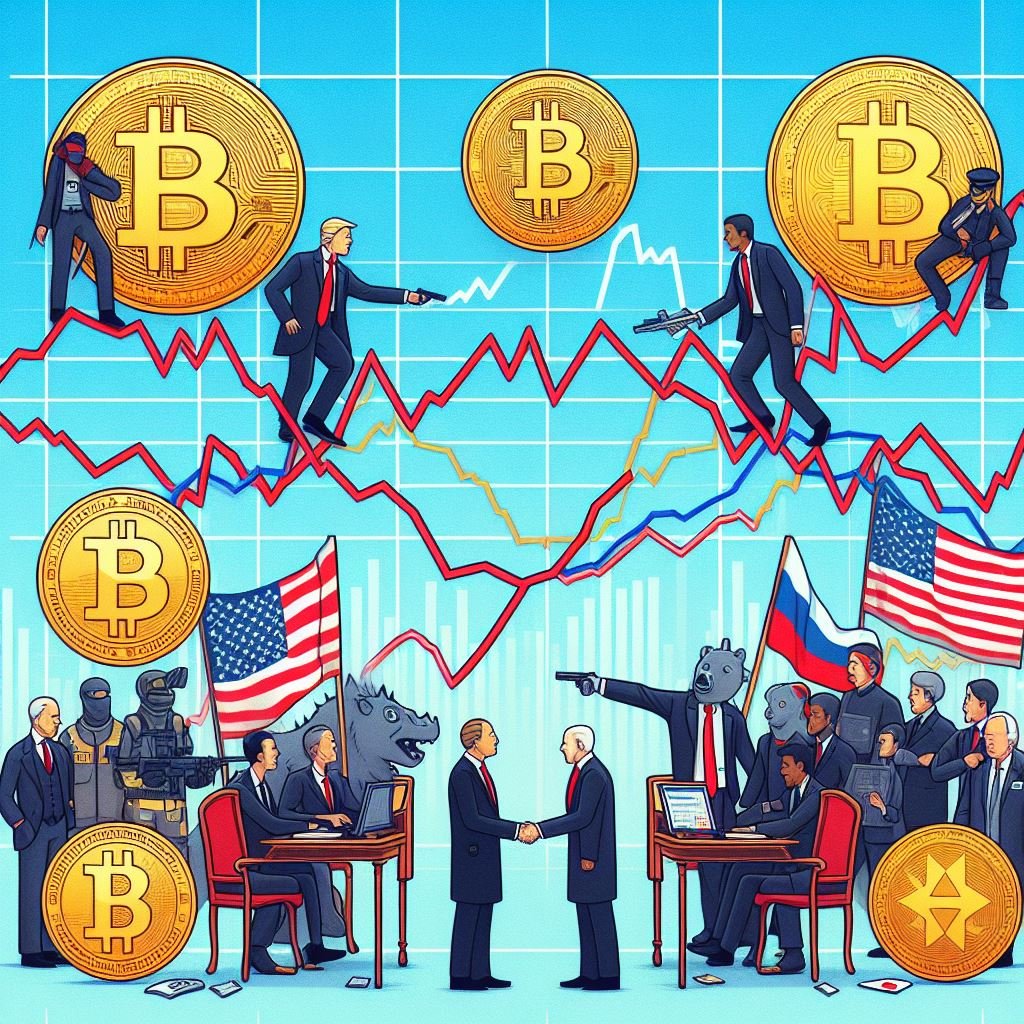The Ripple Effect: Iran’s Attack on Israel and Its Impact on the Crypto Market
1 comment
On April 14, 2024, the geopolitical landscape experienced a seismic shift as Iran launched a significant attack on Israel, escalating tensions in the already volatile Middle East. This move sent shockwaves through global markets, with repercussions that extend far beyond the realm of traditional geopolitics. In the midst of this turmoil, the world of cryptocurrency, particularly Bitcoin, found itself at a crucial juncture.


The Attack and Its Immediate Aftermath
Iran's attack on Israel marked a dangerous escalation in the longstanding conflict between the two nations. While the full extent of the damage and casualties is yet to be determined, the geopolitical ramifications are already reverberating across the globe. The potential for further escalation and the involvement of other regional and global powers raise concerns about the stability of the entire Middle East region.
The Crypto Market's Response
In times of geopolitical uncertainty and instability, investors often turn to alternative assets as a hedge against traditional financial instruments. Bitcoin and other cryptocurrencies have emerged as viable options, touted for their decentralized nature and perceived immunity to geopolitical events.
Historically, Bitcoin has exhibited a degree of correlation with geopolitical tensions, often experiencing price surges during periods of uncertainty. However, the recent attack by Iran on Israel triggered a different reaction in the crypto market. Bitcoin, the world’s largest cryptocurrency by market capitalisation, fell the most in more than a year. The cryptocurrency price dropped from around $67,000 to $61,625, wiping out over $130 million in market capitalization within minutes following the attack.
The Road to Recovery
Despite the initial slump, cryptocurrencies showed resilience. Bitcoin rebounded from the steepest sell-off in more than a year. The largest cryptocurrency advanced 3.9 per cent to $64,400, indicating an early sign of recovery and the inherent volatility of the crypto market.
The Future Implications
The confluence of Iran's attack on Israel and the impending Bitcoin halving has sparked intense speculation about the potential impact on cryptocurrency markets. Some analysts argue that the uncertainty stemming from geopolitical tensions could drive investors towards Bitcoin and other cryptocurrencies, seeking refuge from traditional markets. Additionally, the anticipation of the halving event could further fuel investor interest and drive up prices.
However, it's essential to approach these speculations with caution. While Bitcoin has demonstrated resilience in the face of geopolitical turmoil in the past, it remains a relatively young and volatile asset class. The future of the crypto market in the face of geopolitical tensions remains uncertain, but one thing is clear - the crypto market is not immune to global events and will continue to be influenced by them.
In conclusion, the recent Iran-Israel conflict has undeniably impacted the crypto market, demonstrating the interconnectedness of global events and financial markets. As the situation continues to unfold, all eyes will be on the crypto market, watching how it navigates these turbulent waters.
Comments